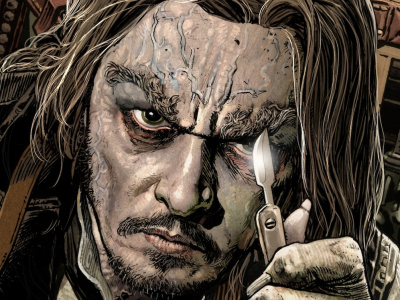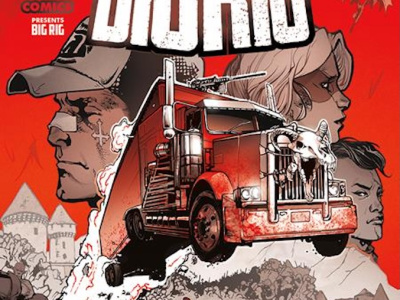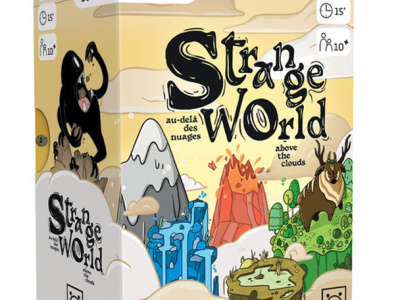Naval Institute Press publishes military histories and classics like Tom Clancy's The Hunt for Red October and Stephen Coonts's Flight of the Intruder. It releases 80-100 books a year.
Most people are probably not familiar with Naval Institute Press itself. What is the mission of Naval Institute Press? What is it?
Thompson: It's broad. We're part of the US Naval Institute, which is a larger nonprofit organization. That is a professional organization that has a mission statement primarily to provide a platform for people to talk and learn about situations that concern global security, national security.
We publish lots of academic books, and lots of histories that are deep dives into specific topics.
How did you pick Dead Reckoning as the imprint’s name?
Thompson: It's a navigational term that we think symbolizes what the press is doing. When you're doing dead reckoning, you are plotting out on a chart where you're at based on certain landmarks, or if you have none, if you're out in the open sea, just a general idea as to where you last knew for certain you were.
Then from that point, you can figure out where you're going to go. For us, we know that graphic novels is a big departure. It's not something that we have done before. We felt that Dead Reckoning was a good way that we could say that even if this isn't something that we've done before, it's a way to advance. It's a way to take the mission forward.
Who's going to edit the line?
Thompson: I am. The Naval Institute Press took me on as just an assistant, decided to throw a couple of projects my way, see if I could handle it, and the rest was history after that.
They felt that I did a good job, so they kept giving me more things to do. After a while, they wanted to know what I was interested in doing. When I told them graphic novels, they took me seriously, to their benefit, to their credit.
I told the press director that I think it's a great opportunity for us. At the time, we actually had someone who had pitched us a graphic novel several years in the past. No one there knew what to do with it. It just sat there.
They said, "Well, why don't you take a look at that and see if you think it's worth anything?" I did. I looked it over and thought it was great. The more we talked about it, the more I convinced them that graphic novels were something new that we could do, something that could help advance the mission of the institute, and made financial sense. You can look at the numbers, and you can see that it's a growing industry. Why not try it?
Are you going to commission works, or put the word and see what people bring you? How are you going to acquire new books?
Thompson: We're doing a bit of both. Since we've published so many books that we feel are good books that have good histories in them, there are certain titles out there that we're definitely going to try and commission adaptations of.
We've already done that with a few select titles. At the same time, I've gone to several conventions over the last two and a half, three years or so, and just do my best to spread the word amongst creators, people that might be interested.
Some of them are interested just in illustrating. Others have some nascent idea that they've wanted to do for a long time, but just figured no one ever would want to publish it. Right now, it's a little bit of things that I've just acquired through word of mouth, through talking to people.
A few others, we've taken a bit more of a specific track on, and said, "Here's this book that we want to adapt." I've gone out to people and said, "Do you want to write it? Do you want to illustrate it?" So far, it's worked.
Any titles you're ready to talk about yet?
Thompson: We're going to launch next year with five titles. We've got a good number of them all ready.
One of the ones that probably are going to be our biggest flagship title is one we commissioned. It's based on a book that we published back in the 80s called Bridge of Dong Ha.
Is that about Vietnam?
Thompson: Yeah, Vietnam. Late Vietnam.
When you’re a marine, there's a handful of marines that are considered legendary. John Ripley is one of the more recent in that handful because he had the unfortunate experience of being stationed in Dong Ha right during the Easter Offensive, when the North Vietnamese were trying to do an invasion of the South.
There was a bridge that the Americans built a few years prior that was the only bridge for a good long distance in either direction that could that the North Vietnamese could use to get 200 some‑odd tanks across the river and down into the South.
Two hundred tanks came barreling down onto this tiny little town on Dong Ha. Ripley very heroically found a way to go under this bridge, strapping explosives to his belt, and just hand over hand climbed underneath it under constant fire. Rigged this bridge to explode for three hours, and somehow managed to blow it up and not get killed at the same time.
It's a hell of a story. The Naval Academy actually has a diorama of that so that students can come and see a figure of John Ripley hanging out under this bridge. That's definitely one of the first ones that we're really excited about.
[Click the Gallery below for exclusive preview pages of Bridge of Dong Ha.]
We have a memoir about a guy in Afghanistan who served at an aid station: The Machete Squad. He was the medical officer there that primarily took care of people that stepped on IEDs and had gunshot wounds, and had to deal with Afghan kids, unfortunately, getting maimed in situations like that, and the experiences that he had to deal with in that.
Trench Dogs is near and dear to my heart. I'm a big fan of small press and independent comics; I've gone to Small Press Expo for 15 years now. When we just started to come up with the idea of doing this imprint, I was at SPX. There was a guy there named Ian Densford who had this small mini-comic called Trench Dogs, that was a nice watercolor comic, 16 some‑odd pages I would guess. It was a World War I comic that anthropomorphized the British as dogs and the Germans were pigs.
You look at this thing, and you think, "Oh, well, this is an interesting juxtaposition of these anthropomorphized animals, and they're fighting," but it's pretty horrific. Ian felt very strongly about how depicting the horrors, the genuine terrifying horrors of World War I, even with these anthropomorphized character, was very important.
I read this thing and was just like, "This is amazing." I really loved it, and went to him pretty much the next day, and said, "Ian, can you make a full‑length book out of this? Can you take 16 pages and turn it into 150?" He was like, "Absolutely."
For the past 18 months, almost two years or so, he's been diligently painting away. It's a much broader scale now. It's not just two sides. It's not just the British, not just the Germans. It's the Russians. It's the Americans. It's the Italians, the French.
It's a wordless comic. It flows from character to character. As one of them gets blown up, shot, or falls down into the mud and drowns, it moves onto the next one, until you get from one point of the war until the very end of it.
One of the things that I really want to do with this line, is I want to offer space for established creators to do books, as well as for people that have really never done it before.
Who's the target audience?
Thompson: The target audience, I think, is a bit of an emerging audience. Late 20s, early 30s guys, largely college educated. Not necessarily academic, but curious about things, people who like history, historically inflected things, and war stories.
Primarily adult male, correct?
Thompson: Primarily adult male, but I feel like there are certainly female readers out there for this. Both men and women proudly serve in the military, and certainly, both men and women should absolutely see themselves on these pages.
Do you have any female creators lined up?
Thompson: Yeah, one of the first books that we're coming out with is called The 'Stan, an anthology of stories from interviews of people who served in Afghanistan. Some of their experiences there were quite positive. Some of their experiences there were very negative. They’re all being illustrated by Blue Delliquanti, who does O Human Star.
She's a largely independent illustrator, so she's been working on that for a long time in conjunction with David Axe and Kevin Knodell of the blog War is Boring. They do a lot of war reporting there. There's other female creators that we have that are doing books that are ongoing right now, but not necessarily in the first five. That's something that I'm actively working on.
Any other products in the pipe?
The last of the five is actually a reprint collection that I'm doing with Craig Yoe. It's a select collection of the comic strip Don Winslow of the Navy.
That's a very interesting book. We've talked to a good number of people who got into the military shortly after World War II. You would be surprised for this one book, how much Don Winslow influenced people to join the military, or got them interested in the military during World War II.
Because it just kept coming up over and over again, people would say, it's like, "Oh, Don Winslow. I used to read that as a kid. I loved it. It was what got me really interested in the Navy and everything." It was a natural choice for us to see if there was something we could do to bring some of those issues back into print. I've been talking to Craig for a good long time, and he's actively out there doing what Craig does, finding all the old things. He's well on his way on that.
What kind of package are you going to publish in?
Thompson: Primarily right now, we're thinking that most of these are going to come out in a nice premier paperback, you know ‑‑ French folds, good stock. A few of them are certainly going to be hardcover here and there.
Your first 12 months, how many books are going to publish?
Thompson: We're starting off with five all at once. Then we're going to try and put out at least one a month after that.
What kind of distribution are you planning?
Larsen: They handle their own distribution. They'll do the book trade, and then to the specialty comics market, they will be going through Diamond. They use Parson Weems Publisher Services, who are commission reps who sell to the trade, primarily.
Some of the examples you used were land war stories, but it's Naval Institute Press. Is that because marines used to be part of the Navy?
Thompson: That's a good point. One of the reasons why we wanted to go with an imprint, and go with a name that didn't specifically have Navy in the title, is that we wanted to make sure that people knew that it's not just naval stories, that it's not just American stories.
At the Naval Institute Press, we publish stories about all of the different services, even though it is primarily American because that is our primary focus. Dead Reckoning gives us a chance to branch out to tell stories from all over the world.
It doesn't have to be contemporary. It doesn't have to be naval. It doesn't have to be American. When people study military history when they are going into the military, they certainly don't only learn stories about what Americans have done over time.
You learn about what the Chinese did. You learn about what the Koreans have done. You learn about Italy. You learn all these other tactics and stories from those times. That's something else that we want to make sure gets reflected.
Anything else our readers should know about this launch or Naval Institute Press?
Larsen: Do you want to come clean that it's all a stealth way to recruit people into the military industrial complex?
Thompson: [laughs] Oh, yeah. It is definitely not that, I'll tell you. That's something that, again, misguided people have a feeling about the Naval Institute itself, is that it's part of the government, it's part of the military.
We are located on the campus of the Naval Academy, so I can understand the place where that comes from. We certainly aren't part of the government. We're certainly not trying to recruit anyone. We're just a group of people that care a lot about military history.
Some of us are retired military, not everyone. You don't have to have served to understand the things that those who have done, how important that they are. We don't have anything to do with the government.
Thompson: There's certainly people out there that might be afraid that we were going to try and glamorize war, but no one who has ever fought in a war ever thinks it's glamorous. We don't do that at the Naval Institute Press, and we're certainly not going to do it at Dead Reckoning.
We certainly believe that there are people out there who bravely serve, who do great things while they're serving our military, but there's people out there who had very bad experiences and who the military has done bad things to.
We've always felt that Naval Institute Press was an open forum to talk about the good and the bad. Dead Reckoning is going to carry that torch as well. We absolutely, absolutely will have stories where people do phenomenal things in service of this country and elsewhere, but you cannot have the good without the bad.
You cannot have stories of people going out there and serving and doing great things without seeing some of the bad things that have happened along the way.
I think one of the upcoming books, The 'Stan, that has all those interviews, is a good example of that because when you're doing all of those interviews with people, you get to see how some of them came away with great experiences with the people in Afghanistan and learning wonderful things about their culture, very really feeling like they were doing what they could to help protect them from the Taliban who were destroying their country.
There's just as many people in there who got to see a really bad side of it and who were victims in their own right of practices and things that happened over there. It's not a one‑sided thing. We're trying to be even‑handed on this.
[Click the Gallery below for exclusive preview pages of Bridge of Dong Ha.]



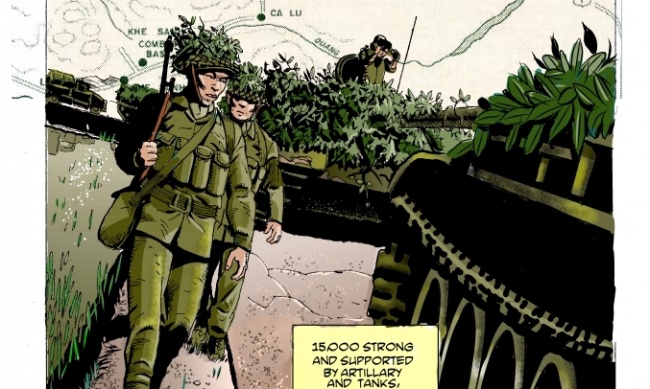
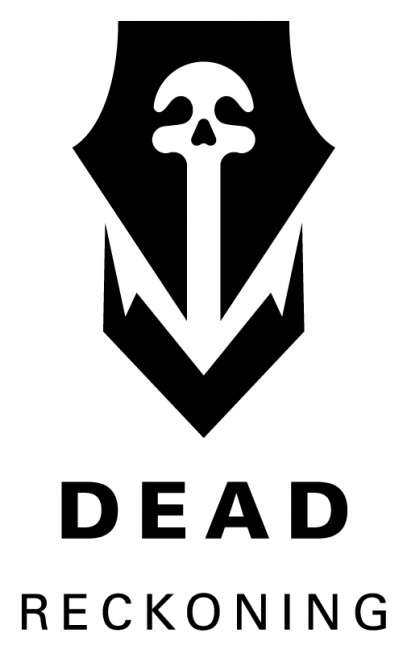
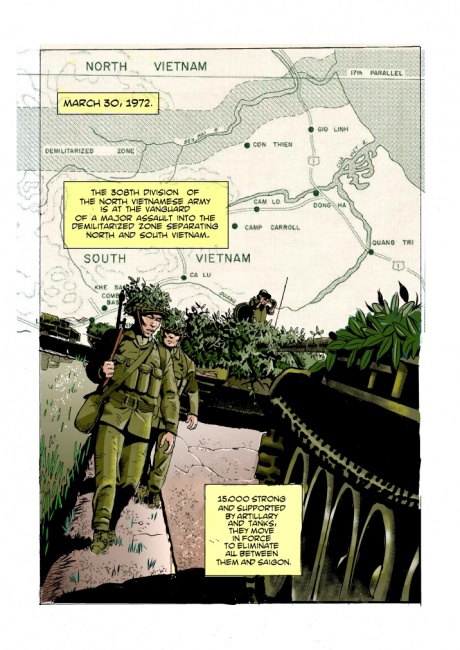
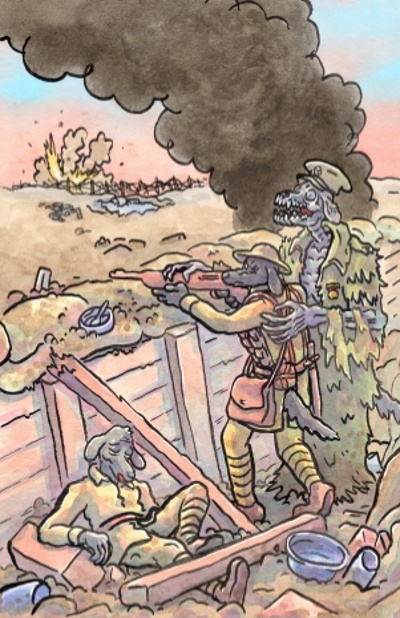
 View Gallery: 5 Images
View Gallery: 5 Images 